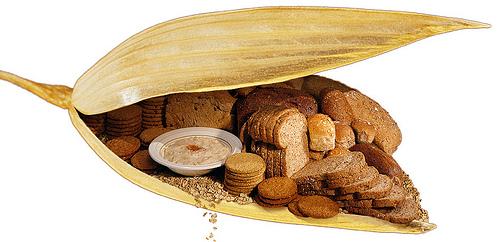 Did you know that gluten, a common protein, is one of the causes of depression, mood swings and other mental health problems? Professor Rodney Ford, a world authority on gluten and food allergies, believes gluten “is sapping the energy and wellbeing of countless millions”, and causing mental health problems.
Did you know that gluten, a common protein, is one of the causes of depression, mood swings and other mental health problems? Professor Rodney Ford, a world authority on gluten and food allergies, believes gluten “is sapping the energy and wellbeing of countless millions”, and causing mental health problems.
With Mental Health Action Week running from 12 to 18 April in the UK, now is a good time to consider whether you, or someone close to you, is suffering from gluten-sensitivity.
What is gluten?
How does gluten affect gluten-sensitive people?
How many people have gluten-sensitivity?
Is gluten-sensitivity the same as celiac disease?
How can we test for gluten-sensitivity?
What is gluten?
Gluten is a protein found in some grains. To remember the main grains that contain gluten, think of the acronym BROW, which is short for:
- Barley
- Rye
- Oats
- Wheat
Gluten is also in triticale – a grain that’s a combination of wheat and rye.
Now this might not sound like many foods, but it’s actually a lot, including most breads, breakfast cereals, buns, cakes, biscuits, pastries, pasta, pizza bases and many commercial soups and sauces.
How does gluten affect gluten-sensitive people?
Professor Ford believes gluten can damage the brain and nerves of gluten-sensitive people. In his article Gluten Causes Brain Disease!, in Celiac.com, he says the symptoms from gluten occur through its action on the nervous system.
Every organ in the body has some form of brain/nerve control. Professor Ford suggests that gluten can injure the nervous networks that control gut function. A malfunction will lead to various gut symptoms.
Gluten can also directly affect brain function. This leads to the symptoms linked to the brain and nerves, which are often seen with gluten-sensitivity.
What symptoms can gluten-sensitivity cause? Gluten can cause symptoms in the mind, skin, guts and more. Below is just a small sample.
- Depression
- Anxiety
- Learning problems
- Migraines
- Lack of concentration
- Changes in mood
- Behavioral problems in children, such as hyperactivity and defiance
Watch the following short video with Dr Ford if you want to know about how gluten can affect the body and immune system.
How many people have gluten-sensitivity?
Professor Ford believes about one in ten people have gluten-sensitivity. He also says, “probably at least a third of all people with chronic illness have a gluten problem.”
Considering more than one in three people in most countries have a mental health problem at some time in their life, this equates to millions of people worldwide who have a mental health disorder caused by gluten.
Is gluten-sensitivity the same as celiac disease?
No, they are different. When people with celiac disease eat foods that contain gluten, their immune system damages the small finger-like projections lining the small intestine, called villi. This leads to malnourishment, as nutrients aren’t digested properly, so all foods containing gluten must be avoided.
How can we test for gluten-sensitivity?
Blood tests for gluten antibodies and tissue damage antibodies can indicate whether you’re gluten-sensitive. Watch the following video for more details.
Gluten appears to cause mental health problems in gluten-sensitive people. As with most health problems, these disorders are worsened or improved by many factors, so when working on improving our health and wellbeing, focus on a variety of areas in our lives.
written by Nyomi Graef
References:
Ford, R, 2006, Gluten Causes Brain Disease!, Celiac.com,
http://www.celiac.com/articles/1085/1/Gluten-Causes-Brain-Disease-By-Prof-Rodney-Ford-MB-BS-MD-FRACP/Page1.html
Ford, R, 26 Jan 2008, The Gluten Syndrome ,
http://www.youtube.com/watch?v=cBTyZtpHOno
Ford, R, 3 Feb 2008, Who needs a gluten test? ,
http://www.youtube.com/watch?v=FtxfV49YYZM

 April 12th, 2009
April 12th, 2009  Nyomi Graef
Nyomi Graef  Posted in
Posted in  Tags:
Tags: 

That is so informative and interesting. Thanks Nyomi.
Mim
For many this info could be a God send!
Bless ya Nyomi,
Andy
Thank you Miriam and Andy, that’s very kind of you.
Kind regards,
Nyomi
I’ve recently started a blog, the information you provide on this site has helped me tremendously. Thank you for all of your time & work.
I’m gluten intolerance and I didn’t know the part about the depression and mood swings. Thank you very much for the information.